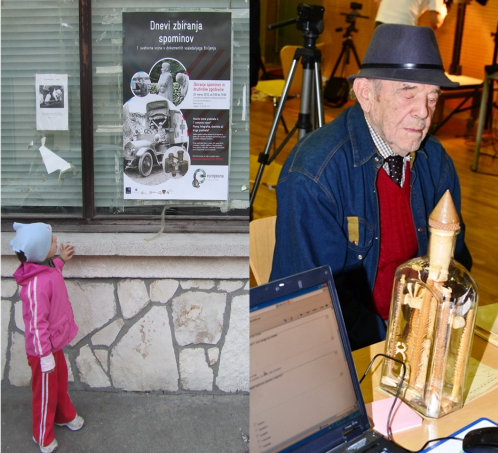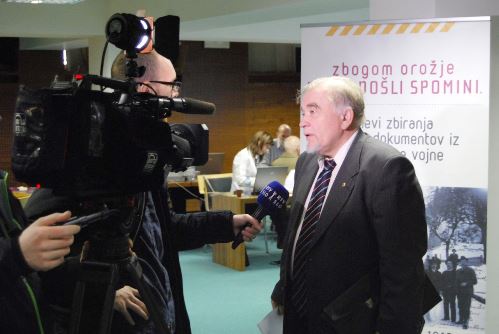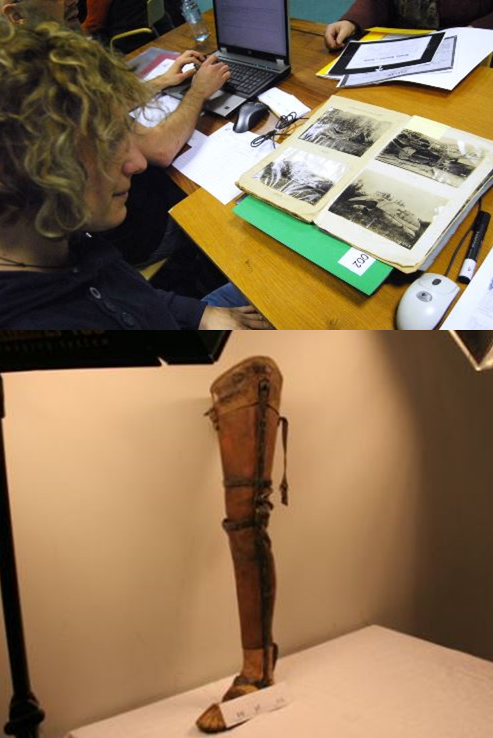Europeana 1914-1918 roadshows inspire Slovenian librarians
Guest blog from Breda Karun, Zavod Jara, an institute for library development in Slovenia.
This is not a story of the First World War, it is a story of how Slovenian librarians, inspired by Europeana 1914-1918 Family History Roadshows, are developing new services using the principles of 'crowdsourcing', 'everyday history' and 'user-generated content'.
Background
We started with three Europeana 1914-1918 Family History Roadshows as part of our Europeana Awareness PR campaign in spring 2012.
Hosting libraries invited volunteers from other regional and smaller libraries to help. The response was very good and we had plenty of staff on hand on the days of the roadshows. Experts on the First World War from museums and archives were also keen to be a part of it and were happy to get in contact with contributors for possible future cooperation.
Volunteers shared their positive experiences when they returned to their libraries, so more libraries decided to organise roadshows in 2013 at their own expense. Two more roadshows ran in spring 2013 and another two are coming up in the autumn.

Young and old: left, a young girl looks up at the Ljubljana roadshow poster, and right, a 100-year-old man with his contribution.
Over the five roadshows run so far, we have welcomed 130 contributors who brought with them a total of 220 stories and 900 objects.
The response from the media has been incredible. We documented 108 mentions in the media around the three collection days in 2012, and more than 50 covering our two events in 2013, including interviews on the most prominent radio and TV stations, newspapers, social media and websites.

Television interview in progress at the Ljubljana event
We noticed that the events brought satisfaction to both staff and contributors. Older people were grateful to have the opportunity to tell their stories to very enthusiastic listeners. Slovenians are traditionally introverted people, sharing their private stories mostly within their family or social group. For this reason, we didn't expect many contributors and were positively surprised about 30-40 people coming to each event. Being able to share the stories through Europeana, Europe's digital library, was an additional stimulation for staff and contributors.
We were so pleased with our results that we presented our experience of Family History Roadshows at the public libraries conference in Macedonia (February 2013) and at the international conference of archivists (April 2013).

A couple of the interesting objects brought to the Slovenian roadshows
Beyond World War One
The successful events sparked interest among librarians and stimulated them to come up with the idea of inviting local people to share memories related to their communities, outside the realm of WWI. One of the planned topics is industrial history - inviting people to share stories about the important industries that were ruined in the 1990s. Whole generations of people worked in factories that have since been closed or destroyed, and many people still keep photos and documents from the time when industry was flourishing.
Our enthusiasm for this type of content collection has also speeded up the development of a user-generated content module on our own regional portal (KAMRA). At present, all the information from KAMRA is uploaded to Europeana on a monthly basis. We are looking forward to discussing with Europeana how our new user-generated content could be incorporated later this year.
